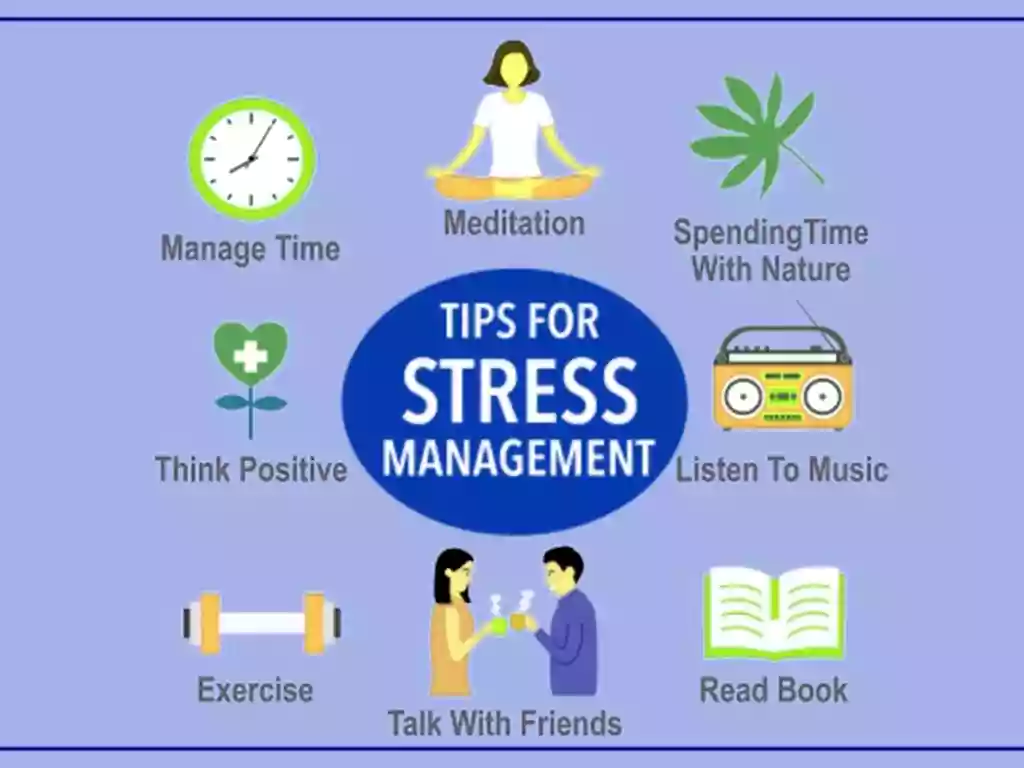Stress management is an essential part of maintaining both mental and physical well-being in today’s fast-paced world. With increasing demands from work, family, and personal responsibilities, it’s easy to feel overwhelmed by stress. Left unchecked, stress can lead to serious health problems, affecting everything from our immune system to our emotional balance. Understanding what stress is and learning how to effectively manage it can make a significant difference in how we handle daily challenges. In this article, we will explore practical techniques for reducing stress, and discuss how managing stress can improve your overall quality of life.
What Is Stress?
Comprehending Stress is the body’s response to perceived threats or challenges, triggering the “fight–or–flight” response. This reaction leads to the secretion of hormones such as cortisol and adrenaline, which prepare the body to tackle challenges. While short–term stress can be beneficial (eustress), prolonged stress (distress) can lead to a range of physical, emotional, and psychological problems.
Sources of Stress
(Stressors) External Stressors: These include factors such as job-related pressures, financial difficulties, interpersonal conflicts, deadlines, environmental factors (including noise and pollution), and major life changes (such as moving, marriage, or divorce). Internal Stressors: These arise from self-imposed expectations, including perfectionism, unrealistic goals, a negative mindset, or poor self-image.
Physical Consequences of Stress
Common physical symptoms of stress encompass headaches and migraines, muscle tension or pain, fatigue, sleep disturbances, gastrointestinal problems (such as upset stomach or irritable bowel syndrome), increased blood pressure, heart disease, and a weakened immune system.
Emotional and Behavioral Consequences
Stress can result in emotional issues such as anxiety, irritability, or depression, challenges in maintaining concentration, feelings of being overwhelmed, social withdrawal, changes in appetite (either excessive eating or loss of appetite), and a heightened dependence on substances like alcohol, tobacco, or drugs.
What Is Stress Management?
Stress management refers to a range of techniques and practices designed to help individuals cope with stress healthily and effectively. It involves recognizing the sources of stress in life, whether they stem from work, relationships, or personal challenges, and then applying strategies to reduce or manage their impact.
These strategies can include mindfulness exercises, physical activities like yoga or walking, time management, and relaxation techniques such as deep breathing or meditation. Effective stress management not only improves emotional well-being but also promotes overall physical health, helping to prevent stress-related conditions such as anxiety, high blood pressure, and burnout.
Healthy Lifestyle Choices For Stress Management
Nutrition:
Taking in a diverse diet that features a variety of fruits, vegetables, whole grains, lean proteins, and healthy fats is critical for carrying on both solid and mental health. Steering clear of caffeine, alcohol, and sugar can help manage stress-related energy fluctuations.
Rest:
Getting enough sleep is key for recovering from stress. Establishing a steady sleep pattern, avoiding electronic devices before bedtime, and fostering a calming sleep environment is advisable.
Minimize Stimulants:
High levels of caffeine or nicotine consumption can worsen stress reactions.
Hydration:
Proper hydration is necessary for the body to function optimally, which in turn aids in reducing fatigue and enhancing overall mood.
Approaches to Managing Stress
Physical Activity
Participating in consistent physical activities such as walking, running, yoga, or strength training facilitates the release of endorphins, which serve as natural enhancers of mood. Additionally, it aids in lowering stress hormones, particularly cortisol.
Progressive Muscle Relaxation
This method entails the sequential tensing and relaxing of various muscle groups, effectively alleviating physical tension.
Deep Breathing
Techniques such as diaphragmatic breathing can assist in lowering heart rate and mitigating stress.
Mindfulness and Meditation Techniques For Stress Management
Mindfulness:
Focusing on the present moment without judgment can greatly diminish rumination and anxiety. Practices associated with mindfulness-based stress reduction (MBSR), including body scanning and mindful breathing, have been shown to effectively decrease stress levels.
Meditation:
Techniques such as Transcendental Meditation, loving–kindness meditation, or guided imagery can calm the mind, fostering a sense of tranquility.
Grounding Techniques:
Methods like the “5–4–3–2–1” technique (identifying five things you see, four you can touch, etc.) assist in redirecting attention to the present, thereby alleviating anxious thoughts.
Time Management and Prioritization of Tasks For Stress Management
Task Prioritization:
Dividing overwhelming tasks into smaller, more manageable parts can render challenges less daunting.
Setting Realistic Goals: It is essential to refrain from overcommitting and establishing unattainable goals, as these can heighten stress levels.
Delegation:
Acquiring the skill to delegate responsibilities at work and home can help reduce pressure.
Utilizing a Planner: Effectively organizing and scheduling tasks can alleviate anxiety associated with impending deadlines.
Cognitive Behavioral Techniques For Stress Management
Cognitive Restructuring: Modifying negative thought patterns through cognitive-behavioral therapy (CBT) assists in reframing stressful situations. For instance, transforming “I can’t handle this” into “I will tackle it step by step” can foster a more positive outlook.
Social Support
Engaging in Dialogue:
Discussing your worries with trusted individuals, such as friends, family members, or a mental health professional, can alleviate stress. Articulating your challenges often aids in gaining clarity.
Professional Guidance:
Seeking assistance from professionals, including cognitive-behavioral therapy (CBT), psychotherapy, or stress management coaching, can equip you with effective strategies for enduring stress relief.
Peer Support Networks:
For those experiencing chronic stress, joining support groups that address similar challenges (such as caregiver stress, grief, or addiction) can provide significant emotional support.
Relaxation and Hobbies For Stress Management
Recreational Pursuits
Participating in leisure activities such as reading, painting, gardening, or playing music can serve as a distraction from stress.
Connection with Nature:
Spending time outdoors or engaging in practices like “ecotherapy” (forest bathing) has been proven to reduce cortisol levels and enhance mood
Artistic Expression:
Channeling emotions through creative endeavors such as art, writing, or music can be therapeutic and help release accumulated stress.
Workplace Stress Management
Establishing Boundaries:
Defining clear distinctions between work responsibilities and personal time is essential to prevent burnout. Refrain from answering work-related calls or emails during personal hours.
Taking Breaks:
Integrating brief breaks throughout the workday can enhance productivity and mitigate mental fatigue.
Workplace Ergonomics:
Ensure that your work environment is designed for physical comfort to prevent stress-related injuries, such as repetitive strain.
Long-Term Stress Management
Cultivating Resilience
Resilience refers to the capacity to adapt and recover from challenges. Fostering a resilient mindset includes:
– Emphasizing personal strengths
– Upholding a positive perspective
– Enhancing problem-solving abilities
– Practicing self-kindness
Establishing Healthy Coping Strategies
Instead of resorting to detrimental habits (such as smoking or excessive drinking), prioritize constructive coping strategies:
– Journaling to process emotions
– Utilizing humor to ease tense situations
– Taking “mental health days” for personal well-being
– Seeking spiritual or philosophical guidance


